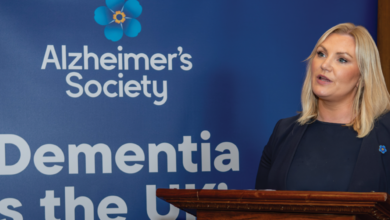Mental capacity legislation
 The Mental Capacity (Health, Welfare and Finance) Bill will include a statutory presumption of capacity, meaning a person is presumed able to make decisions about their lives, regardless of whether they have a disability or not. The Bill is unique because, for the first time in the UK, mental capacity and mental health law will be fused together.
The Mental Capacity (Health, Welfare and Finance) Bill will include a statutory presumption of capacity, meaning a person is presumed able to make decisions about their lives, regardless of whether they have a disability or not. The Bill is unique because, for the first time in the UK, mental capacity and mental health law will be fused together.
It has been welcomed by disability charities, pointing to Article 12 of the UN Convention on the Rights of Persons with Disabilities.
Disability Action has stated that Article 12 “means disabled people have the right to make decisions about their lives, but in reality this is often not the case.”
However, organisations campaigning for children and prisoners’ rights are concerned that the bill currently does not apply to under 16s or those in the criminal justice system. There is a possibility of those in the criminal justice system being merged into the Bill in the future.
The legislation was proposed by the 2007 Bamford review of mental health and learning disability and is not expected to be enacted until 2013, given its complexity.
The principle of autonomy was central to Bamford’s recommendations and will form the basis of the Bill. Therefore, a person will be presumed to have the mental capacity to make their own decisions unless the contrary is proved.
Assessment of mental capacity will be a two-stage process. A diagnostic test will examine whether a person has an impairment of, or disturbance in, the functioning of the mind or brain. A functional test will then consider whether the individual can understand the information needed to make a decision, and whether the person must be assisted in that understanding.
In situations where decisions on health, welfare or financial matters have to be made on behalf of a person who lacks capacity (and who have not arranged alternative decision-making arrangements, such as power of attorney) the Bill will provide powers to enable those decisions to be made on behalf of that person.
The department has explained that capacity is “decision specific” in that a person may be able to make a decision about how they want to be cared for but not about the treatment for a particular condition. In light of that, the Bill will provide protections and will ensure that the person’s views are taken into account. It will require substitute decision-makers to intervene in a way that is in the person’s best interests at all times. The protections will vary according to the seriousness of the intervention.
A tiered approach will be taken to interventions i.e. routine, urgent, and formal. For serious interventions such as acute clinical or surgical treatments, re-housing, or the compulsory treatment of a mental disorder, individuals will be entitled to nominate a person, or a nominated person will be identified to look after their interests.
If the individual lacking capacity or the nominated person objects to the serious intervention, he or she will also be entitled to an independent advocate. If the advocate also objects, the Bill will require the intervention to be authorised by the health trust. At that stage, it must be reviewed by either the Mental Health Review Tribunal or by the High Court.
The Bill is expected to be introduced to the Assembly in October 2012.





